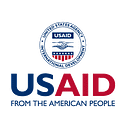USAID CATALYZE
SOCIAL PROTECTION
As we navigate the long-term economic and social impacts of the COVID-19 pandemic, improved social protection systems are vital to addressing food insecurity, and poverty. According to the World Bank, “Social protection systems help individuals and families, especially the poor and vulnerable, cope with crises and shocks, find jobs, improve productivity, invest in the health and education of their children, and protect the aging population.”
USAID CATALYZE, implemented by Palladium, designs blended finance solutions to support social protection programs and improve access to financial and social protection for women and girls, as many women are employed in industries characterized by precarious employment arrangements. In partnership with the private sector, USAID Missions, government partners and local organizations, USAID CATALYZE co-designs, tests, and implements scalable social protection activities that build the resilience of vulnerable populations who live in, or at risk of, crisis caused by conflict, political and economic instability, or environmental fragility.
CATALYZE is an eight-year (2019–2027) contract designed to amplify the impact of USAID’s resources by mobilizing private capital towards underserved sectors, geographies, and populations across 38 countries. CATALYZE is implemented by Palladium.
WHAT WE DO
Increase Access to Affordable Health care Via Workplace Services
In the Philippines, CATALYZE will form partnerships with employers who understand the importance of health, particularly reproductive health, and work with local health providers to make counseling, services, and commodities available at these employers’ job and training sites. Young people from low-income families will be trained on how to navigate the health system and provided essential knowledge in reproductive health and family planning.
Upskill and Mentor Youth to Facilitate Sustainable Employment
In the Philippines, CATALYZE will provide technical and life skills training to youth ages 18–24 from low-income households, and facilitate employment opportunities for them through local job placement firms and partner employers. USAID CATALYZE plans to engage adolescent girls ages 14–18 through a mentorship program to promote confidence, life skills, and knowledge of healthy behaviors.
Increase Access to Affordable Health Care Via Insurance
CATALYZE builds financial risk protection from catastrophic health expenses. In Indonesia, CATALYZE collaborates with the national social protection agency to increase the number of informal sector workers who are active and paying members of the national health insurance program. The program will deploy multiple strategies to reach that goal, including increasing insurance awareness and improving premium payment ability and process, leveraging innovative digital tools, the private sector, and civil society.
Improve Food Security through Work and Access to Capital
Financial protection through work and access to capital can help vulnerable populations increase their incomes to withstand the deepening climate crisis, food shortages, supply chain disruptions caused by Russia’s war in Ukraine, and the enduring effects of the COVID-19 pandemic. In Ethiopia, CATALYZE designed cash-for-work programs that provide temporary jobs to enhance fertilizer production and strengthen productive agriculture activities that support livelihoods and strengthen shock responsive safety nets and their delivery systems. In the Sahel, where severe drought and the deteriorating security situation threaten food security, USAID CATALYZE helps women increase their incomes and savings by facilitating investments in larger-scale productive economic activities through capital injections into savings groups. In South Africa, we signed investment agreements totaling USD 2.05 million into a financing facility to deploy capital through financial institution and lending partners into non-state early childhood development centers serving low- and lower-middle income communities.
Improve Evidence for Best Practices
USAID CATALYZE monitors platforms and assesses the impact on service use, paid employment, financial resilience, and resulting economic empowerment and health status of vulnerable women. USAID CATALYZE can help governments institutionalize social indicators to measure risks and support data collection and analysis on vulnerable and marginalized populations. In India, CATALYZE is assessing the market and enabling environment for Early Childhood Care and Education, allowing us to identify the most promising state/districts, inefficiencies, and opportunities to improve the quality of childcare services by leveraging private sectors. In Bangladesh, USAID CATALYZE assessed the status of girls’ education to explore the underlying causes of discontinuation in school.
